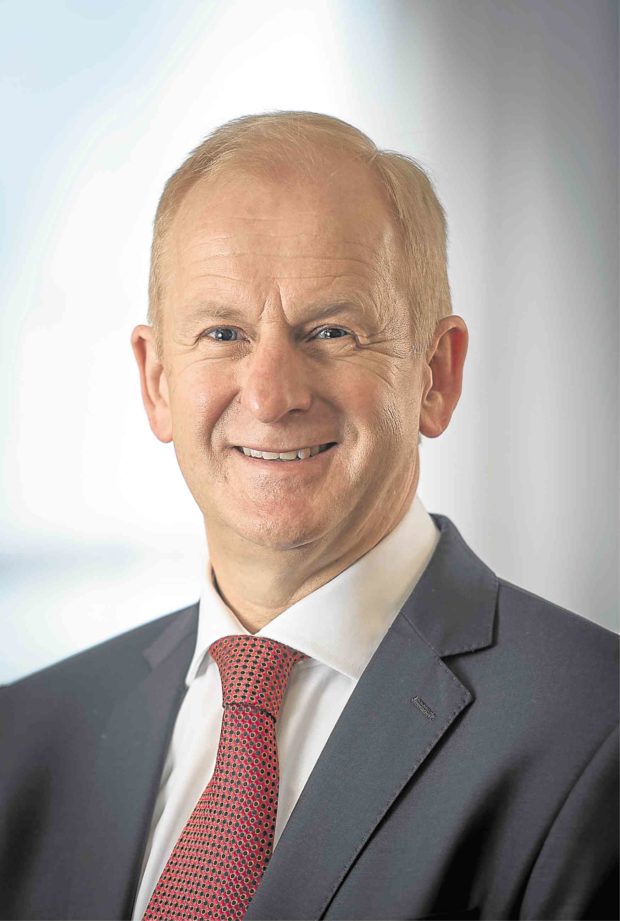The future of mobility: Not one solution, but many
In 1807, when he patented the first hydrogen-powered engine, François Isaac de Rivaz could have been forgiven for thinking he had found the future of transport.
Yet here we are, more than 200 years later, still wrestling with the same question. What will drive us tomorrow?
Some still say hydrogen. Some say battery electric power. Some say natural gas.
I say, we must explore all the options. I believe that the future of transport will be shaped not by one solution, but many.
De Rivaz’s hydrogen car may not have been a success, but we can learn from his inventiveness, his vision, his will to do things differently.
Because when it comes to the future of transport, we need every solution we can get.
Whether it is the rise of the electric jeepneys, tricycles or scooters on Manila’s roads or plans for a national network of electric vehicle charge points.
We face a pressing challenge.
Transport accounts for more than a quarter of the world’s energy use and one-fifth of global energy-related CO2 emissions.
There are a billion cars on the roads today and this is expected to double by 2040.
We must all consider this region’s energy future and how society will meet demand, while reducing emissions to tackle climate change and air pollution.
Last month [OCT], the Intergovernmental Panel on Climate Change (IPCC) outlined the need for an ever more rapid transition to a lower-carbon world. This begins with CO2 emissions falling sharply from 2020. That is barely a year away.
We need multiple solutions because no one solution can meet all needs, in all places, at all times.
That is certainly a key conclusion of Shell’s latest scenario work, which was cited by the IPCC.
Our Sky scenario sets out a challenging but plausible route the world could follow to meet the aims of the Paris agreement and restrict the rise in global average temperature in this century to well under 2°C.
Given its significant impact, the transport sector must rise to this challenge. And to find solutions, we have to continue to work together.
Indeed, Shell is in many ways heading on the same path as the Philippines and the wider region.
Take battery electric cars. Indonesia, for example, has introduced incentives for electric cars on imports and battery manufacturing.
China accounts for about half of global production and has the highest number of electric cars on the road.
And in the Philippines, Shell is in talks to install the first network of fast charging points in the country in 100 of its forecourts.
In Europe, Shell acquired NewMotion, one of Europe’s largest providers of charge points, operating more than 40,000 private points for homes and businesses.
When it comes to hydrogen as a fuel, it has potential for heavy freight, including rail.
De Rivaz would certainly approve.
In Japan, their vision of a “hydrogen society” begins in 2020, with plans for fleets of hydrogen fuel cell vehicles serving the Olympic Games in Tokyo. Shell too, is increasing its investment in hydrogen.
In Germany, for example, our plans include a joint venture to establish a nationwide network of 100 filling stations by 2019.
Natural gas also has potential in trucking and shipping. China, for example, has the world’s largest fleet of vehicles running on liquefied natural gas.
Last year, the number of LNG-powered trucks it produced rose to 96,000.
Shell now has one LNG filling station in China, through a joint venture, and nine in Europe.
We have also signed deals in shipping with Carnival to supply the world’s first LNG-powered cruise ships and with Sovcomflot, to supply the first LNG-powered oil tankers.
And both Shell and the region recognize the potential of advanced biofuels, which could help the aviation sector in the future.
In Indonesia, the B20 regulation is a positive step toward the country’s emission reduction targets.
At Shell, we are already one of the world’s biggest producers of biofuels, through our joint venture in Brazil, Raízen.
It produces about 2 billion liters a year of ethanol from sugarcane, and continues to explore advanced biofuels.
Digitization too, is creating potential for many other solutions.
We see a future in which autonomous vehicles are connected and working as fleets.
It is a future of innovative business models from ride sharing to mobility-on-demand.
In Manila, Shell has developed Connected Freight, which uses sophisticated route-optimization technology to make inner-city deliveries more efficient.
There are plans to expand to other cities in the Philippines, to Singapore and across Southeast Asia.
Meanwhile, Shell’s work continues to improve today’s fuels and lubricants.
Together with car makers—and policymakers—we can continue to improve the efficiency of engines.
And in shipping, Singapore is one of three ports where Shell is testing our new very low sulphur fuel oil.
There is much happening, but if we want to meet the challenge posed by the future of transport, we must work together on a multitude of solutions.
If we focus on one only, we risk the fate of De Rivaz’s hydrogen engine.
And we must not let brave ideas stall, just when we need them most.

